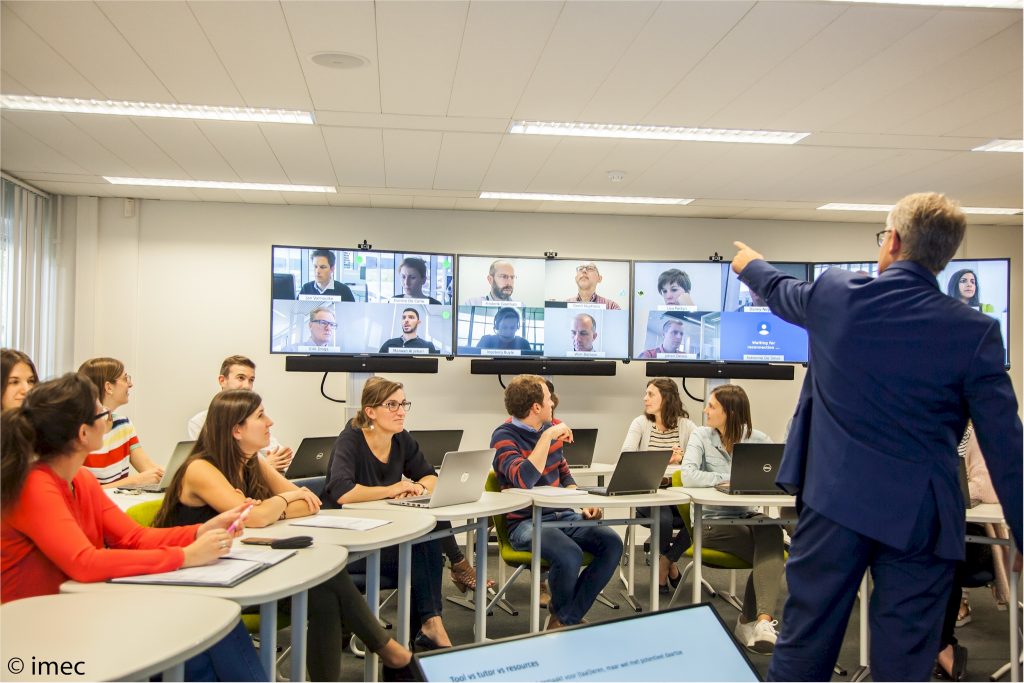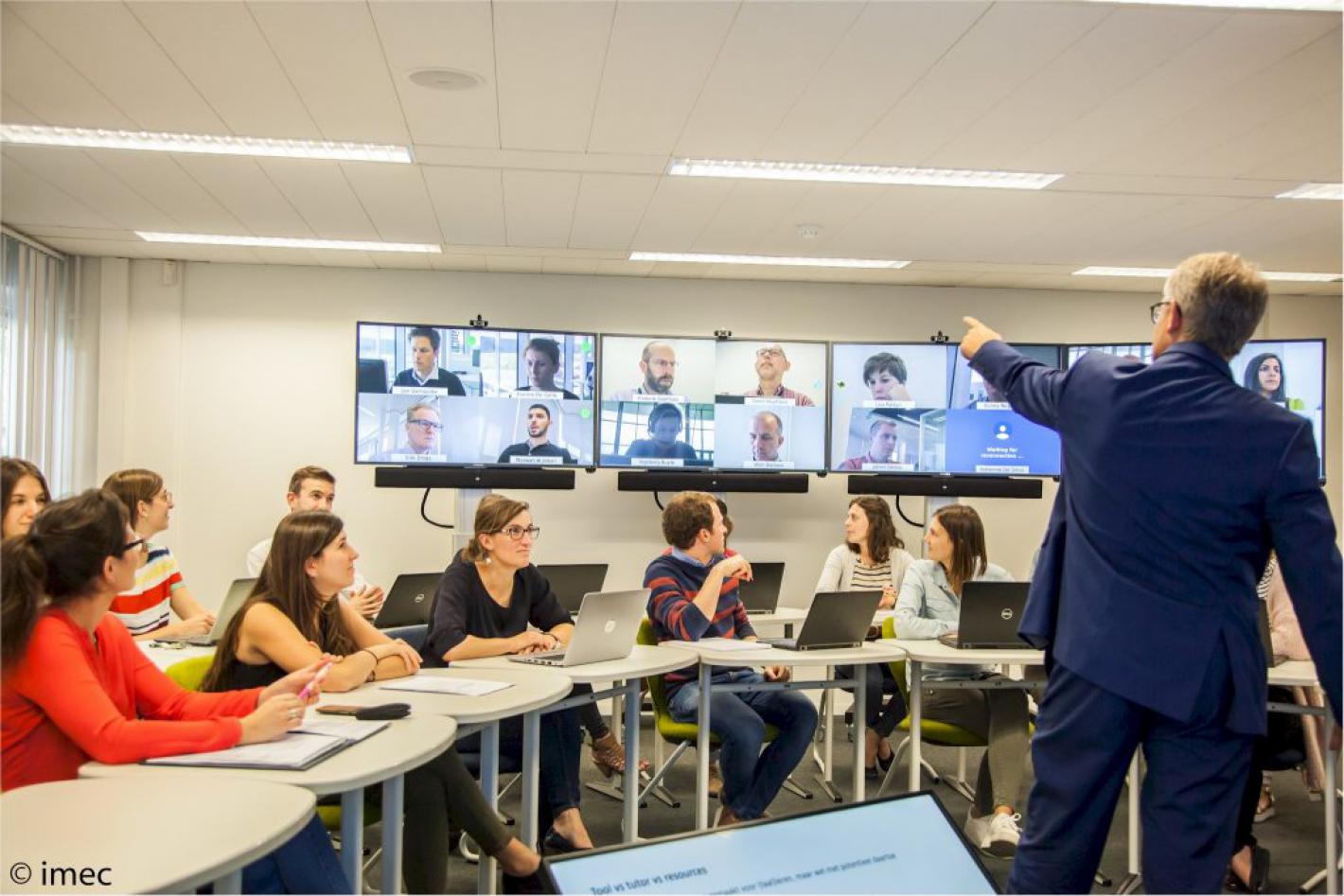Crossing borders with the hybrid virtual classroom
The digital economy of 2025 will demand a flexible workforce, open to continual change and with the capacity to adapt in response to the complexities of the global economy. This means that educational institutions and those in vocational training need to constantly think about how to enable people, at any stage of their lives, to take part in stimulating learning experiences. The student population is also becoming more diverse with participants combining learning with work and/or family commitments. Within this context, digital technologies are put forward as providing a possible way in which the educational landscape can be changed and made more flexible and accessible for a larger and more diverse group of learners.
The LECTURE+ imec-ICON project* aims to make distance learning as seamless and vivid as learning in face-to-face classrooms without sacrificing the affective features of face-to-face instruction by building synchronous hybrid virtual classrooms. These classrooms connect both on-site students and individual remote students during synchronous teaching and learning. This provides the pedagogical freedom to reach distance learners and educational experts from anyplace in the world, increasing both societal access to education and improving the quality in education as knowledge transcends the boundaries of the classroom.
The hybrid virtual classroom presented below is innovative compared to previous video- and web-conferencing platforms as the system not only includes improved software to connect students and the teacher and to make spontaneous interaction possible but also a redesign of the physical learning space to meet the challenge of offering all students comparable learning experiences regardless of their location. Special attention has been paid to making the hardware lightweight and ensuring ease of use of the set-up from the perspective of the teacher, the students and the room operator.

In a recent study, published in Computers and Education, researchers from ITEC report on an educational experiment to investigate how different learning settings (remote versus on-site) can affect students’ motivation and performance, and about the teachers’ experiences of teaching in this brand new learning space. The study also investigated whether launching quizzes could successfully affect students’ motivation.
The key takeaways from the study can be summarised as following:
- Hybrid virtual classrooms are promising for flexible learning.
- The usability of the hybrid virtual classroom was evaluated positively by both the students and the teacher. The teacher expressed his enthusiasm about this educational experiment and mentioned that the experience exceeded his expectations. He stated this as follows: “I thought that teaching to virtual students would have been very artificial and weird, but this was not at all the case. I had the feeling that my students were very close to me and I could see their faces and expression even better than in a traditional F2F classroom; … I could easily interact with them as I do in a normal class setting and I had the feeling my students were very attentive.”
- Yet, it has to be stated that teaching and learning in the hybrid virtual classroom is still challenging from a technical and pedagogical approach. Remote participants report being less connected with their peers following the lecture on-site. Moreover, this lower relatedness resulted in a lower motivation for learning. This means that the instructional design of the learning environment is still open for improvement regarding the connectivity between on-site and remote students to improve the sense of belonging of the remote participants.
- The study confirmed previous research stating that overall, students’ motivation decreases over time, however, it was confirmed that launching quizzes can significantly improve students’ motivation, also in this particular setting. Remote students and on-site students equally appreciated the quizzes and half of the students even indicated that they would prefer to organize them more frequently during lectures.
- Future research should investigate the effect of different pedagogical scenarios to more deeply investigate how the experience of the remote students in the hybrid setting can be approved by means of instructional interventions like collaborative (remote) breakout-sessions between on-site and remote students.
The results of the overall Lecture+ project will be presented and demonstrated on the Closing Event on the 19th of November and is open to all interested. Register here.


